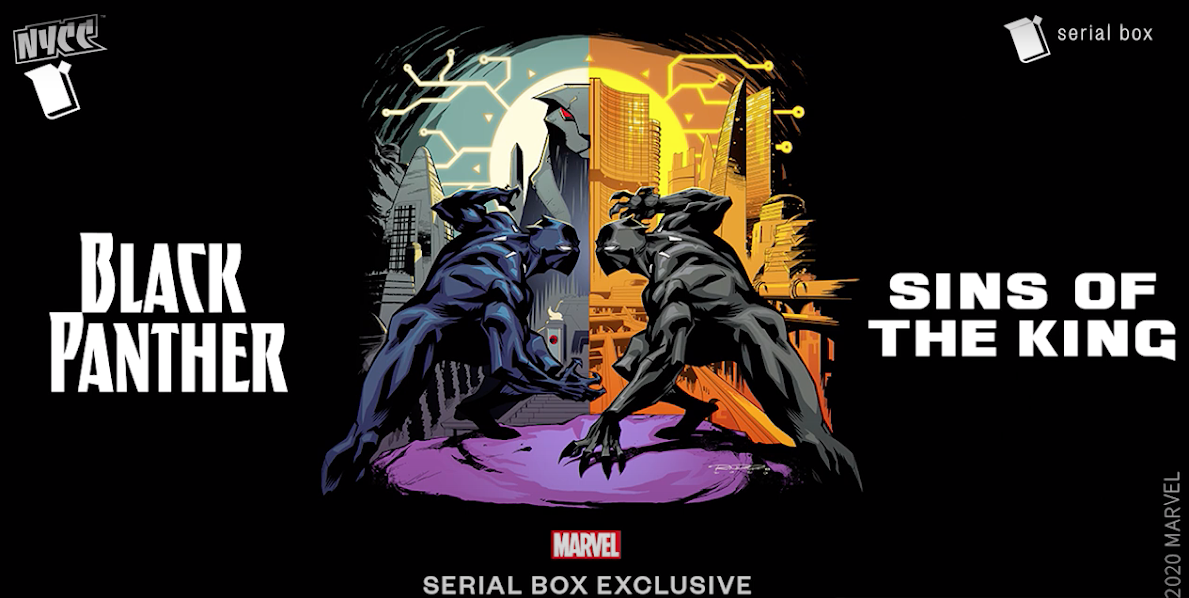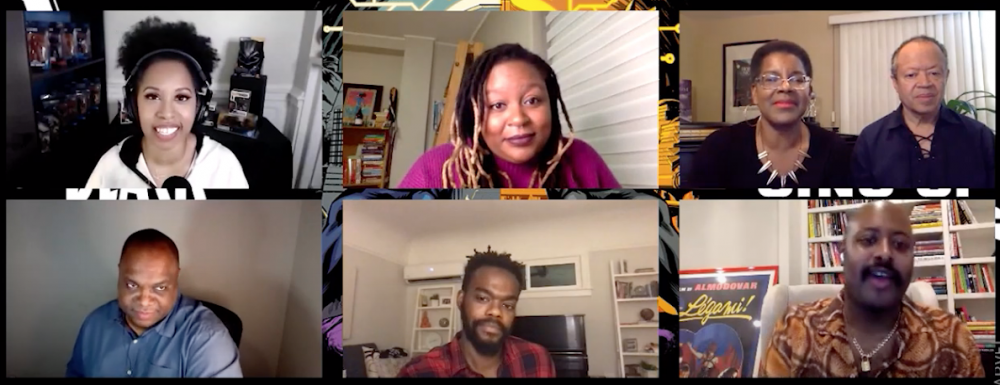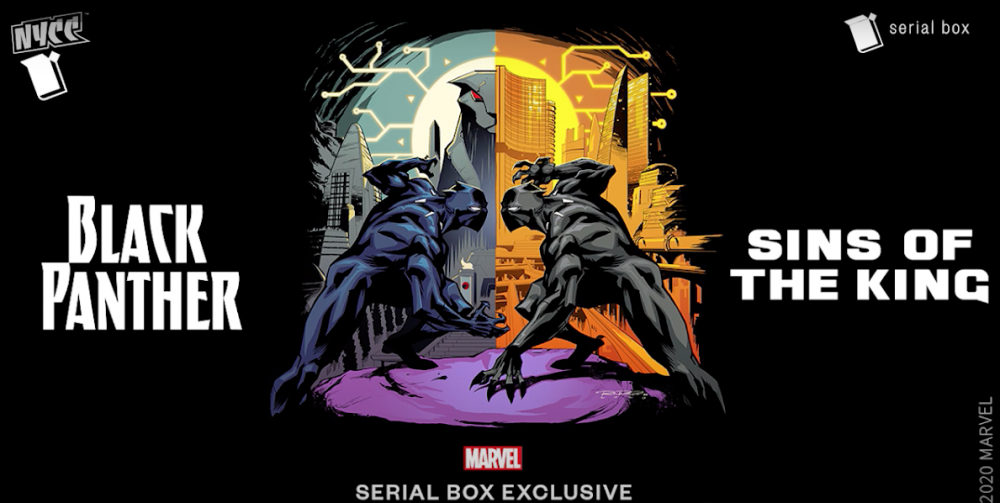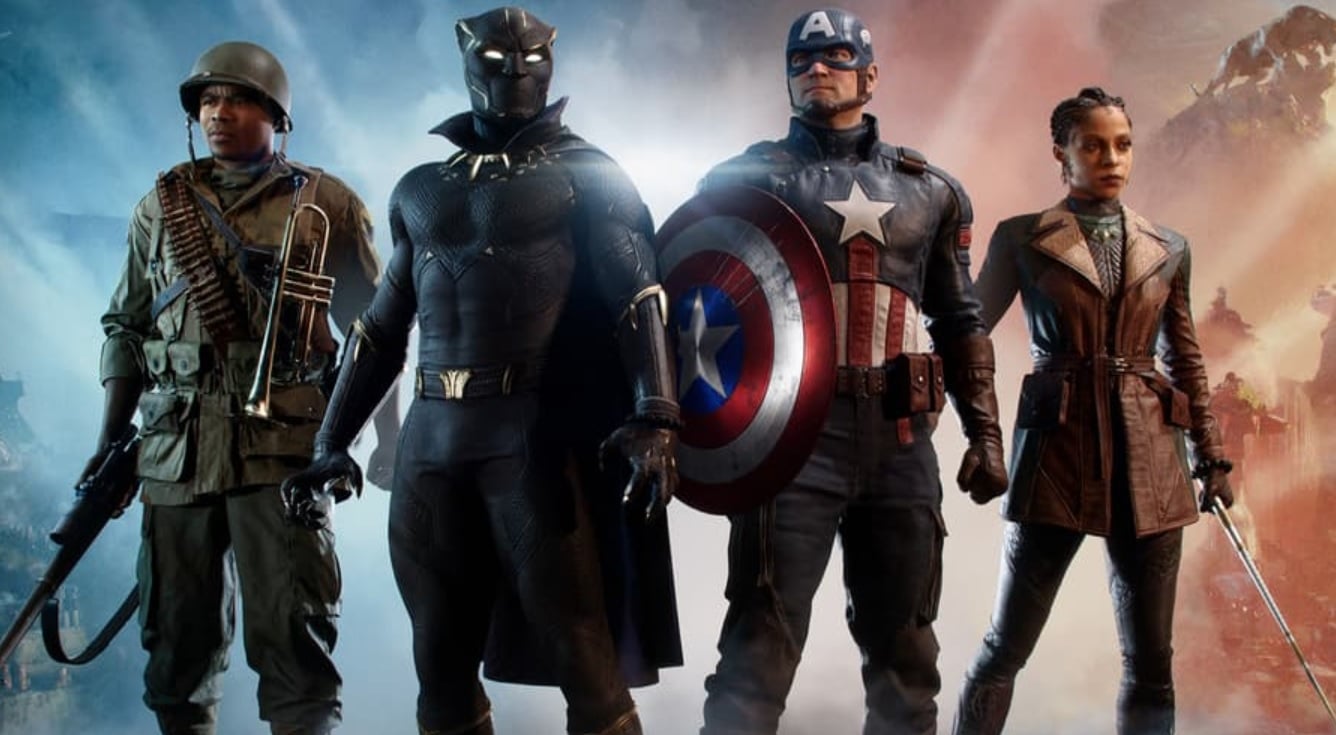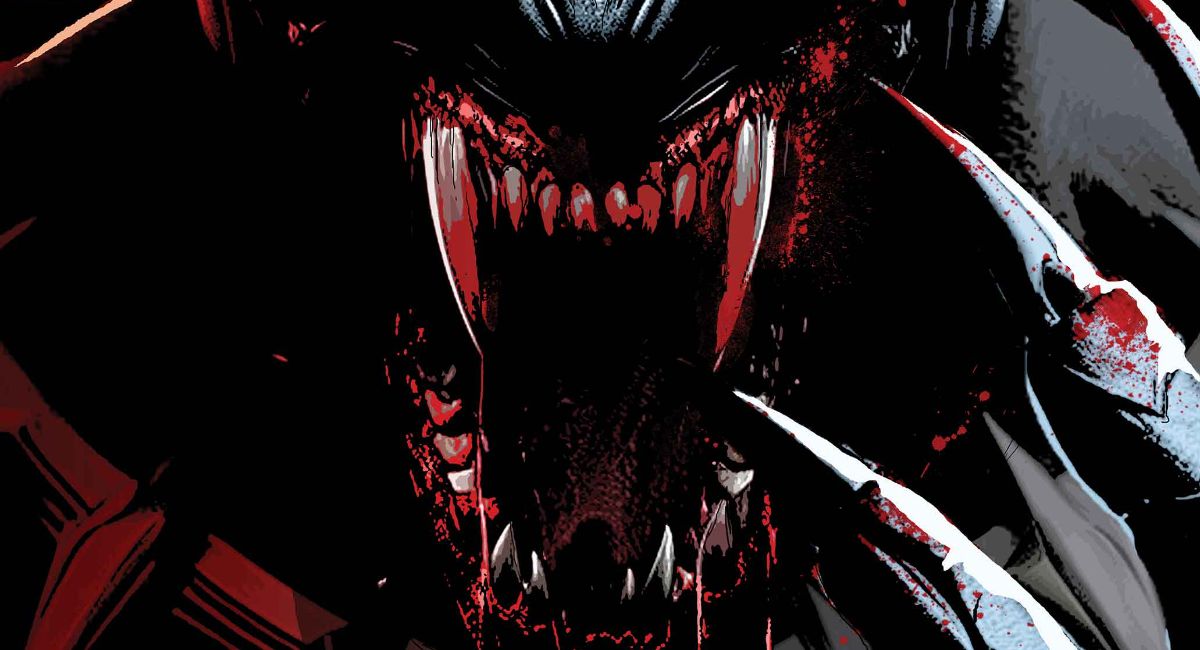By Adam Karenina Sherif
Serial Box’s NYCC panel for Marvel’s Black Panther: Sins Of The King was hosted by culture journalist Karama Horne, and featured the book’s lead writer Ira Madison III (Daybreak), contributing writers screenwriter Geoffrey Thorne (Law & Order: Criminal Intent), author and scholar Tananarive Due (My Soul To Keep), author and screenwriter Steven Barnes (The Twilight Zone), author and musician Mohale Mashigo (The Yearning), as well as the book’s narrator William Jackson Harper (The Good Place).
Horne first offered a thoughtful eulogy for the late Chadwick Boseman, speaking of his achievements and consciousness as a source of hope during such a difficult year.
Serial Box is “an immersive platform for eBook and audiobook fiction across sci-fi, fantasy, horror, mystery and thriller genres”. The upcoming Marvel’s Black Panther: Sins Of The King will be available as both eBook and audiobook, which is great from an accessibility standpoint. Its narrative is an all-new story: Black Panther is revealed to have a terrible secret that threatens to undermine his efforts as both King of Wakanda and superhero. The story sees T’Challa seeking advice from his own father before confronting the demons of his past. As Horne put it, “so, apparently we got zombies, y’all?”
The writing team spoke about their world-building and their central themes, drawing on both the comics and the film. Madison detailed his interest in asking “what happens to this country that was hidden before, and now the whole world knows about it?” He also described the narrative as “current”, offering reflections on what Black Panther means in the context of the Marvel Universe, but also within our world. And on an emotional, personal level, “it’s a story about a Black father and his son, at its core”. Barnes spoke thoughtfully on how the creation of Black mythologies, Black stories is both a philosophical and a political act. Harper expressed his keenness to communicate the story’s political nuance in his performance: “this story breaks apart the monolithic view of Blackness, in a science fiction, action-packed forum”.
Due positioned Black Panther as being very much within the Afro-Futurist pantheon, defining Afro-Futurism as “Black speculative arts of the African diaspora”. Barnes added that where there’s a distinction between Afro-Futurism and African-Futurism, it’s found in the former having a more pronounced American lens to it. Mashigo, who is South African, agreed that it’s absolutely “okay for people to call it something different where they are”. Asked about the Marvel Studios film’s reception in her country, she replied “it was the same! We all went to the cinema dressed up in our traditional – we showed up and showed out!”
Madison also shared his excitement around being able to bring other Marvel characters into this new Black Panther story: “Listen, if he’s teaming up with the Avengers, he’s teaming up with the Black Avengers and we’re throwing Misty in there!” And alongside Misty Knight, the panel also confirmed Rhodey’s involvement, too. Harper described his role as narrator, having to embody the numerous characters within the book, as “putting me through my paces”. He emphasised wanting to honour each character’s specificity, given the richness of their characterisation and visual depictions within the comics. He also shared that from his first read of the first episode’s script he could tell “this is a group of writers who knows what the f- they’re doing”. He’s currently halfway through the recording process and referred to the story as “something that propels itself”.
Due and Barnes, who are married and regularly work together, shared some insights on their collaborative process. Once they have a treatment or outline down together, they work out which of them is best suited to lead on the project and work on a first draft from there. In this case Due took the lead and Barnes offered edits. Thorne highlighted that overall it was a smooth process and that the team was able to use easy shorthand with one another. “There was not a lot of explaining, you know what I’m talking about?”, he said with a smile.
On the question of whether Black stories and Black characters are finally here to stay, in a mainstream context, or whether it’s a fad, Thorne replied optimistically, “it’s our ball to drop”. On a pragmatic note he added, “from a business side, it would be literally stupidly leaving money on the table” given that Black Panther has caught on more widely than just with Black audiences. And from a creative standpoint, he highlighted the importance of access within the industry and how significant it is that there are now multiple Black voices across the creative industries and the arts. Thorne also gave props to Christopher Priest for his paradigm-shifting work on the character with the Marvel Knights: Black Panther comics. He credits Priest with near enough “everything you saw in the movie, everything that’s trickled down since then”. Priest made Black Panther unique and “frankly it took a Black guy to take the reins on that, and he happened to be an extremely talented Black guy”.
The panel concluded with a short preview of Marvel’s Black Panther: Sins Of The Father which you can listen to at 26:55 in this video.
Miss any of The Beat’s NYCC ’20 coverage? Click here!



